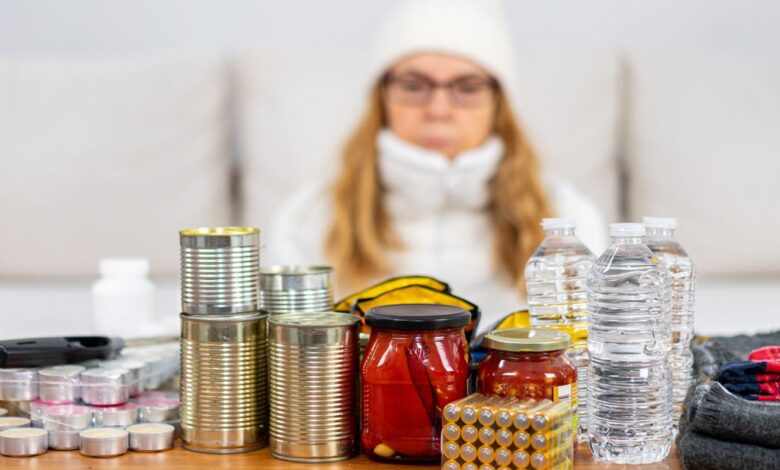The perils of ultraprocessed food

[ad_1]
People who eat more highly processed foods such as ice cream, fast food and salty snacks could face an increased risk of cancer, especially ovarian cancer and breast cancer, researchers have found.
A study of more than 197,000 U.K. adults ages 40 to 69 was published this week by the Lancet, a peer-reviewed medical journal. The authors said this is one of the biggest sample sizes ever used to research the effects on health of ultraprocessed foods.
Ultraprocessed foods are items such as soda, sausages, salty snacks and microwavable meals that are produced in a highly industrialized environment. Those foods contain high amounts of sugar, fat and sodium and are low in essential nutrients such as fiber and vitamins.
But the lack of nutrients is not the only issue: In order to prolong their shelf life, highly processed food often contains additives such as flavor enhancers and sweeteners as well as industrial chemicals, some of which are introduced during the production process and some that leach into the food from packaging.
Some of those additives, known as endocrine disruptors, affect the human body’s endocrine or hormonal system, which can lead to obesity and to a higher risk of hormone-sensitive cancers, such as breast and ovarian cancers, said Jeanine Genkinger, associate professor of epidemiology at the Mailman School of Public Health at Columbia University in New York. Genkinger was not involved in the study.
Chemicals in food
Phthalates, chemicals that are found in some types of food packaging and some fast-food products, are also a type of endocrine disruptor. “The chemicals get into food mainly through packaging and food handling equipment, like cellophane, paper and paperboard, and plastic in contact with food,” according to the Environmental Defense Fund, a nonprofit environmental advocacy organization. “While used in many consumer products, prescription drugs and medical devices, food is a major source of exposure to phthalates.”
Between 2009 and 2012, the participants self-reported their food intake using a “web-based 24-hour recall” conducted five times between 2009 and 2012, and the researchers monitored their health through January 2021. The researchers calculated participants’ consumption of ultraprocessed food as a percentage of their total food intake.
Over the years, the authors observed that every 10-percentage-point increase in consumption of ultraprocessed foods was associated with an increased risk of cancer overall, as well as with higher mortality rates from ovarian cancer and breast cancer.
But not everyone has the same cancer risks, Genkinger said. Lower-income people and people who don’t have access to fresh food are often the most vulnerable.
Studies show that lower-income households purchase fewer healthy foods than higher-income households do and also buy more sugary drinks and snacks and fewer vegetables and fiber-rich foods.
Food deserts
One reason: In the U.S., one in five Black households is located in a “food desert” — an area where it’s difficult to buy affordable or good-quality fresh food — according to a report published by the consulting firm McKinsey & Co.in 2021.
Last year, President Joe Biden spoke about the need to eliminate food deserts, defined as areas — predominantly low- and moderate-income communities — where people have to travel miles to purchase fresh produce and other healthy foods. The White House pledged grant and loan funding to encourage grocery stores to open in these areas.
As food prices have been rising — in some cases at a record pace — it has become even more difficult for lower-income households to purchase foods high in nutritional quality, Simone A. French, professor of epidemiology and community Health at the School of Public Health of the University of Minnesota, said in an email to MarketWatch.
And because the higher consumption of processed foods can lead to long-term health issues, Genkinger said, “individuals who are more vulnerable or disadvantaged are going to be more vulnerable.” But, she noted, “ultraprocessed foods [are] cheaper and easier to prepare.”
The Lancet study adds to a growing body of research focused on the effects of eating processed foods on health. One 2022 study concluded that higher consumption of ultraprocessed foods could lead to cognitive decline.
The average consumption of ultraprocessed foods among the study’s participants was close to 23% of total food intake. During the follow-up period, 15,921 individuals developed cancer and 4,009 cancer-related deaths occurred.
According to a separate analysis of 99 peer-reviewed studies covering more than 1.3 million people, reported in 2021, ultraprocessed foods made up more than 50% of people’s diets, on average, in both the U.S. and the U.K., far higher than the 23% reported by the U.K. participants in the Lancet survey.
[ad_2]
Source link



